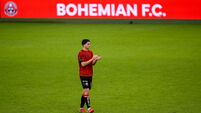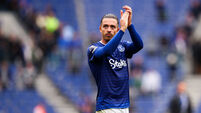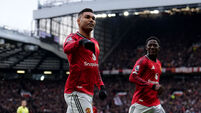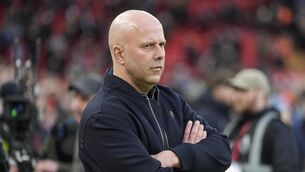Germans' proud record is scratched
The competition specialists departed the competition in Portugal with a whimper, losing to what was virtually a Czech Republic second choice team, and they must watch with envy as German-born coach Otto Rehhagel leads Greece in today's quarter-final against France in Lisbon.
Germany, with five final appearances and three wins in the competition, boast a record far superior to that of the rest of Europe.














